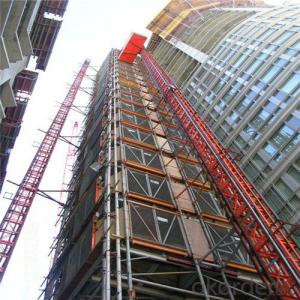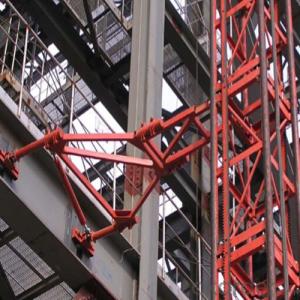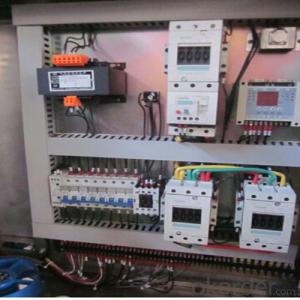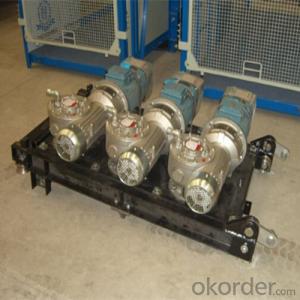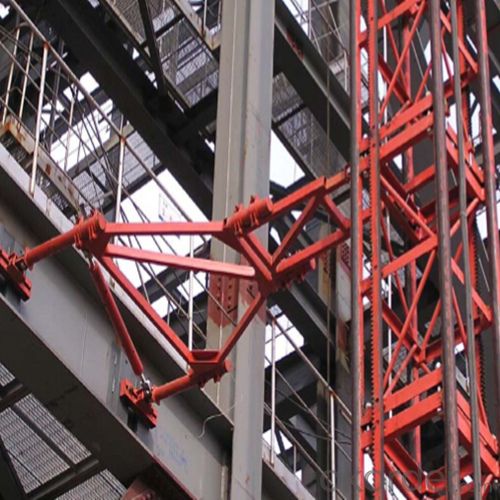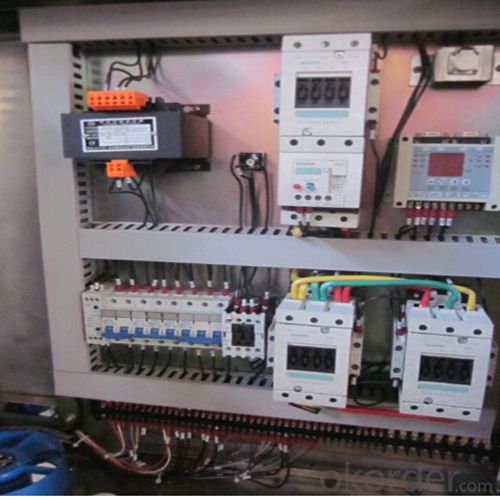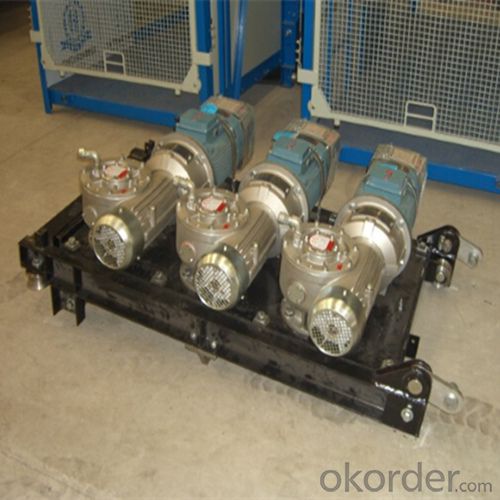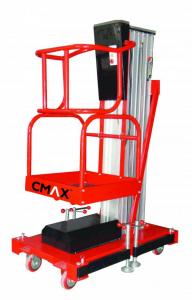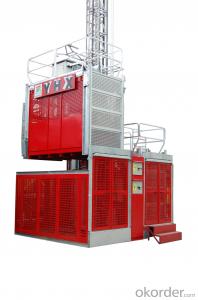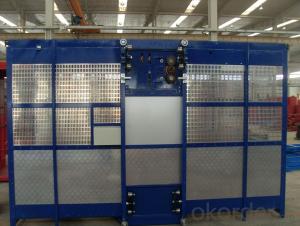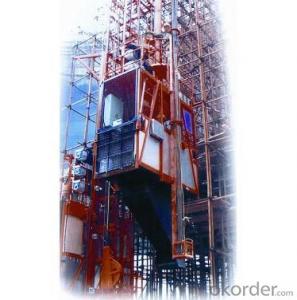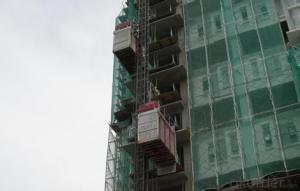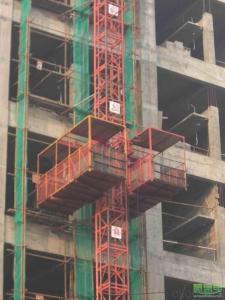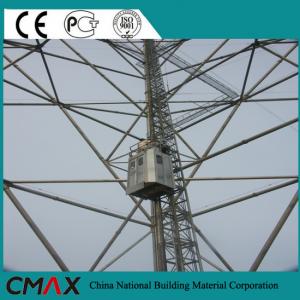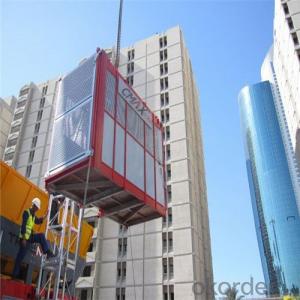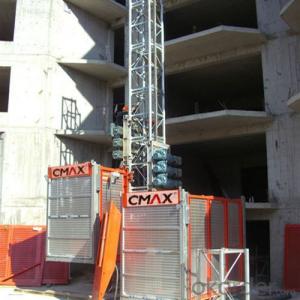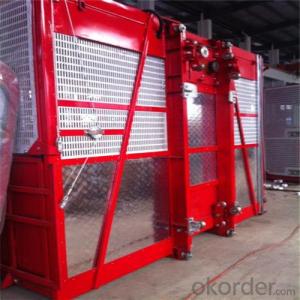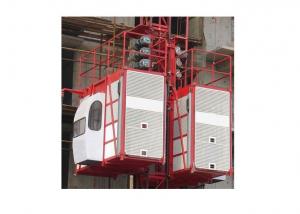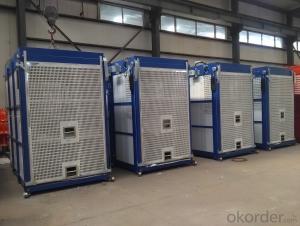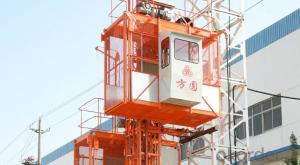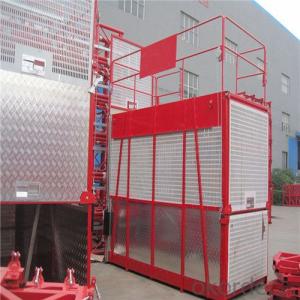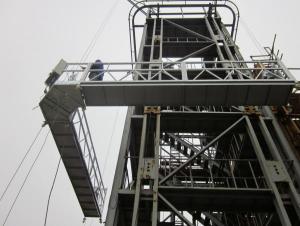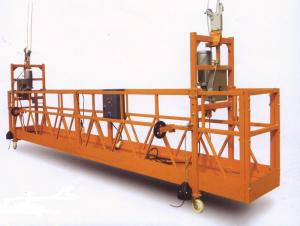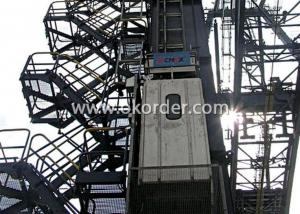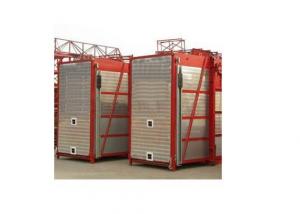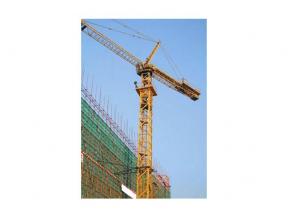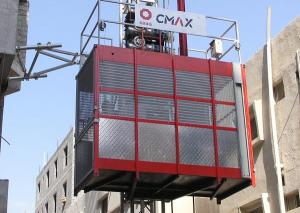Building Hoist SC270/270 Middle Speed Twin Cage
- Loading Port:
- China main port
- Payment Terms:
- TT OR LC
- Min Order Qty:
- 1 unit
- Supply Capability:
- 30 unit/month
OKorder Service Pledge
OKorder Financial Service
You Might Also Like
Structure of Building Hoist Description
Feature: Building Hoist Condition: New Application: Construction
Payload(kg):2*2700 Lifting Speed(m/min):0~60 Motor Power(kw): 2*3*18.5
Safety Device: 2*SAJ50-1.4 Cage: Twin Counterweight: No
Certification: CE,ISO Place of Origin: China(Mainland) Model Number: Type:SC270/SC270
Packaging & Delivery of Building Hoist
Packaging Detail: Nude package Delivery Detail: 25-30days
Main Parts of Building Hoist
● Adopts the most advanced VF speed control device and microcomputer programmable logic controller.
● Stepless speed control helps eliminate the concussion during start up and braking, steady the operation process,
and ensures automated leveling.
● Adopts open loop V/Fcontrol; the speed control precision can reach ±2~3%. Realizes accurate low speed positioning of the hoist and avoid slipping during downward stopping of hoist.
● The VF system has current-restriction function, ensuring a small current when motor start up and reducing the concussion to power supply. It reduces the engery consumption and mitigates effects to on site electric equipments.
● The steadiness during running mitigates concussion to mechanical parts, reduces wears of rack, pinion and the brake
and prolongs the spare parts'life.
● The VF system also has the over voltage protection,low voltage protection, overcurrent, overload and anti-stalling protection functions,
● The system applies the special software for hoists developed by our company, making the operation more safe and
reliable.
Building Hoist Images
CMAX Building Hoist
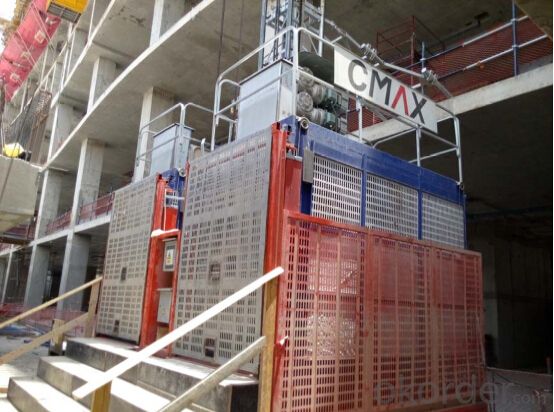
Anchorage System
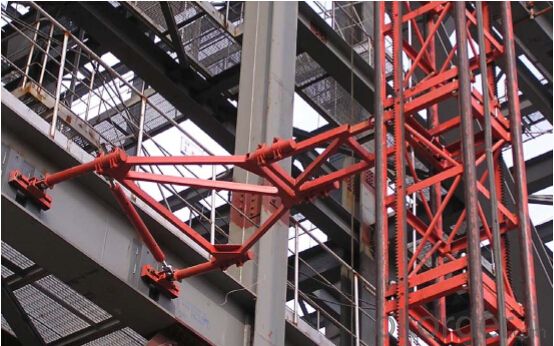
Mast Section
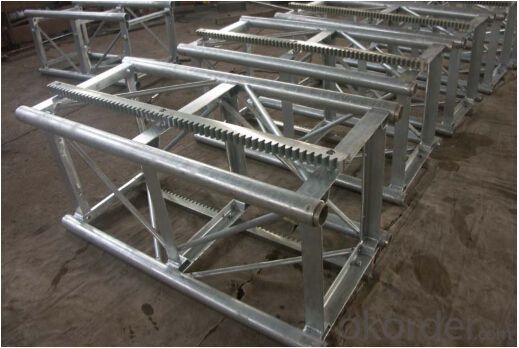
Driving Unit
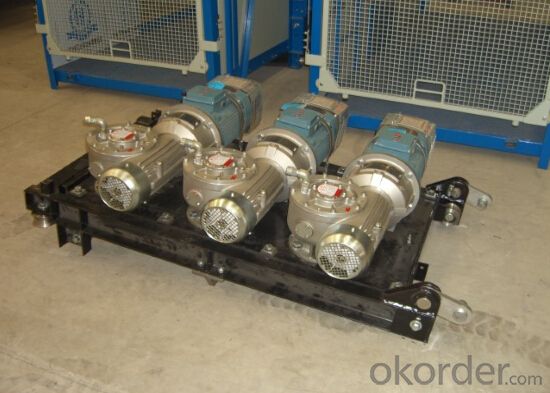
Building Hoist Specifiction
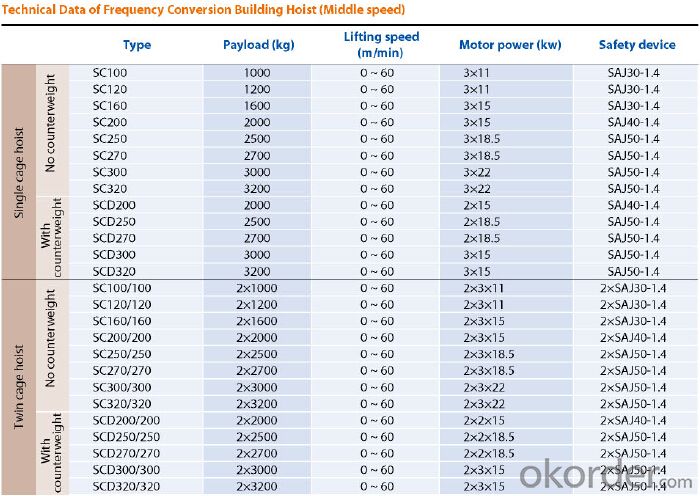
FAQ of Building Hoist
Q: What is the building hoist main purpose?
A: Building hoist equipped with double or single cabin to transport the materials and labors up and down. It's the ideal
construction equipment for vertical transportation in the field of construction.
Q: What is the main structure of building hoist?
A: The P/M construction hoist mainly contains metal structure, driving system, electrical control system, cable guide &
protection system, electrical top crane and safety device.
Q: What is the meaning of the building hoist’s code?
A: Take SC200/200 for example: “SC” stands for rack and pinion hoist, “200/200” stands for double cage and capacity
is 2 tons per cage. “SC200” stands for single cage and capacity is 2 tons.
Q: What is the dimension of the cage?
A: Normally the cage dimension is 3X1.5X2.5M (L/W/H) for 2t type hoist. Details should be checked according to our
quotation sheet. Also, the size can be customized according to the factual site condition. There are two doors (entrance
& exit doors) for each cage, It can be produced as up & down sliding or ramping model for safety and convenience.
- Q: This question asks for a comparison of the pros and cons of utilizing hydraulic cylinders in the context of building hoists.
- <p>Hydraulic cylinders in building hoists offer several advantages, including high force output, compact size, and precise control. They provide smooth and controlled lifting, which is crucial for heavy construction materials. Additionally, hydraulic systems can generate large amounts of force with relatively small cylinders, making them space-efficient. The disadvantages include potential leaks, which can be hazardous, and the need for regular maintenance to ensure the system's reliability. Hydraulic systems can also be more complex to install and repair compared to electric or manual systems. Furthermore, they require a constant power source, which might not always be readily available on construction sites.</p>
- Q: The staff on the construction platform shall not exceed the number of people
- There is no specific specification that should be more platform-specific
- Q: This question asks for steps to ensure that lifting equipment is safe and reliable before it is used.
- <p>To ensure your lifting equipment is safe and reliable before use, follow these steps: Inspect the equipment for any visible damage or wear. Check all safety features such as hooks, cables, and brakes. Ensure that the equipment is properly maintained and serviced according to the manufacturer's guidelines. Verify that all safety certifications and inspection records are up to date. Conduct a thorough pre-use check, including testing the equipment's lifting capacity and stability. Ensure that all operators are trained and certified to use the equipment. Never use equipment that has not been inspected or is showing signs of damage. Always follow the manufacturer's guidelines and safety protocols.</p>
- Q: Is it possible to use a lifting device to assist in lifting a person who is too heavy to lift manually?
- <p>Yes, lifting devices such as hoists or mechanical lifts can be used to safely lift someone who is too heavy to lift manually. These devices are designed to support the weight and reduce the risk of injury to both the person being lifted and the caregiver. It's important to use the appropriate equipment for the individual's weight and to follow safety guidelines and manufacturer's instructions to ensure proper and secure lifting.</p>
- Q: This question asks if a building hoist is capable of lifting objects that vary in size and weight.
- <p>Yes, a building hoist can be used to lift objects of different sizes and weights, but it is crucial to ensure that the hoist's capacity is suitable for the load. Building hoists are designed to handle various materials and equipment during construction, and their lifting capacity can range from a few hundred pounds to several tons. It is essential to check the hoist's specifications and adhere to the maximum load limit to ensure safety and prevent damage to the hoist or the objects being lifted. Always follow the manufacturer's guidelines and safety standards when operating a building hoist.</p>
- Q: Where is the location of the elevator in the project
- Construction elevator location setting, need to take into consideration the situation of the scene and the layout of the building, should consider the following factors: To facilitate the conveyance of material transportation, choose the more spacious rooms in the layout of the floor as import and export; The outside of the elevator is as spacious as possible, with construction channels and materials. The construction materials are minimized in the floor, usually in the middle of the flat. The construction personnel are handy; Monomer building expansion joints at the junction, traffic between unit set up by the elevator capsules export operation platform is completed, so the corresponding reduced floor wall body of the reserved hole lien expansion joints
- Q: How many floors are built to use the construction elevator? With six floors?
- The construction elevator, the average layer height above 12 floors need to be used, the hoist machine is not to go up to use the construction elevator to send a person to carry a few light things upstairs.
- Q: How much cable does the construction elevator 44KVA need?
- 44 kva should choose 16 + 2 * 3 * 6 square cable, 16 of the 30 ℃ safe carrying capacity is 78 a cable Current I = P/U / 1.732 = 44000/380/1.732 is approximately 67A The construction elevator will not only carry the engineering materials but also the higher frequency, the load calculation will be calculated according to the continuous working system. The cable should be used for the YGTZ special cable.
- Q: This question asks about the method to determine the maximum weight a building hoist can safely support.
- <p>Calculating the maximum load capacity of a building hoist involves several factors. First, consider the hoist's mechanical design and the manufacturer's specifications, which provide the rated load capacity. This is the maximum weight the hoist is designed to handle. Next, assess the condition of the hoist, as wear and tear can reduce its capacity. Additionally, consider the strength of the supporting structure and the safety factor, which is typically a multiplier of the rated load capacity to ensure safety. For example, if the hoist is rated for 1000 kg, a safety factor of 1.5 means the actual maximum load should not exceed 667 kg (1000 kg / 1.5). Always consult with engineers and follow local regulations and standards for precise calculations.</p>
- Q: What are the steps and considerations for maintaining a building hoist to ensure its safety and functionality?
- <p>To maintain a building hoist properly, follow these steps: Regularly inspect the hoist for any visible damage or wear. Lubricate moving parts as per manufacturer's recommendations. Ensure all safety devices are functioning correctly, including limit switches and emergency stop buttons. Check the hoist's electrical system for any signs of damage or wear. Keep the hoist clean and free from debris. Conduct a thorough inspection after any incident or near miss. Regularly test the hoist's load capacity to ensure it is within safe limits. Train operators on safe hoist operation and maintenance procedures. Always follow the manufacturer's guidelines and local regulations for maintenance and inspection.</p>
Send your message to us
Building Hoist SC270/270 Middle Speed Twin Cage
- Loading Port:
- China main port
- Payment Terms:
- TT OR LC
- Min Order Qty:
- 1 unit
- Supply Capability:
- 30 unit/month
OKorder Service Pledge
OKorder Financial Service
Similar products
Hot products
Hot Searches
Related keywords
